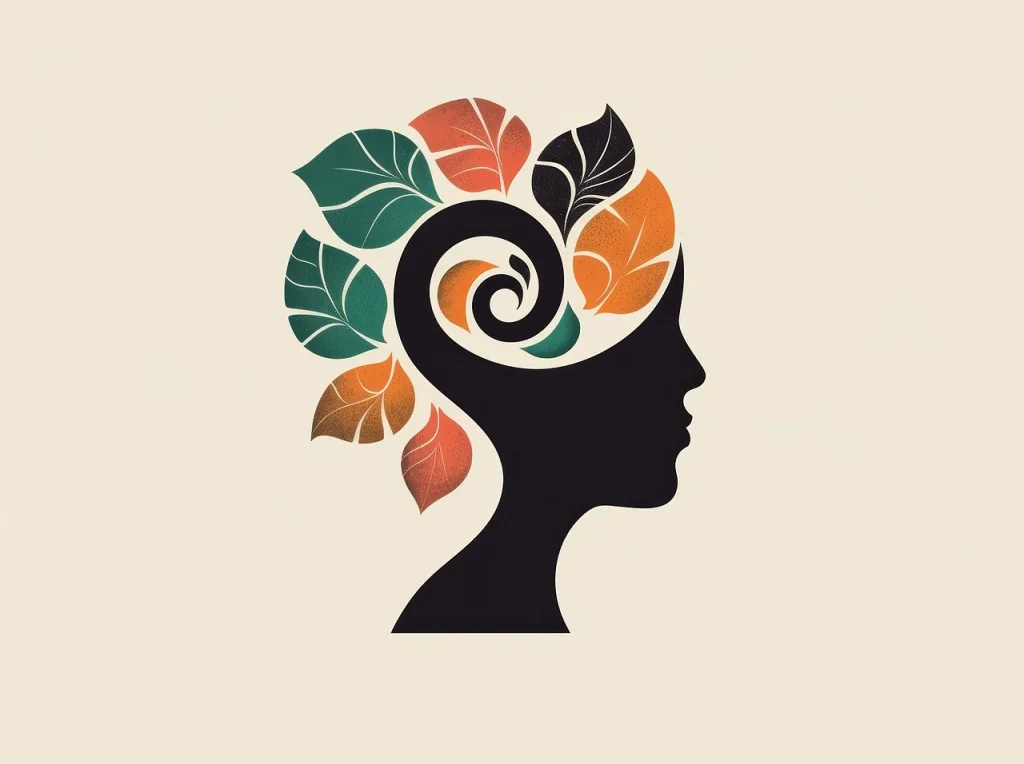Journal for Mental Health: Your Path to Inner Strength
From work stress to personal relationships, it’s no wonder that mental health issues are on the rise. But fear not, for there is a powerful tool that can help you navigate through the challenges and emerge stronger on the other side – journaling for mental health. By putting pen to paper, you can unlock the power of introspection, self-discovery, and personal growth. Join me on this journey as we explore how journaling can be your path to inner strength.
Understanding the Power of Journaling for Good Mental Health

Grasp this undeniable truth: journaling for mental health is not merely a practice but a transformative journey.
It’s a robust mechanism through which you navigate the tumultuous seas of your emotions, thoughts, and experiences, crafting a sanctuary for your mental well-being.
Oprah Winfrey encapsulates this journey beautifully, stating, “Keeping a journal of what’s going on in your life is a good way to help you distill what’s important and what’s not.” Imagine the sheer power of dissecting the chaos of your mind, laying it bare on paper, and from that chaos, drawing clarity, insight, and direction.
The act of journaling is akin to having an unwavering confidant, ever-ready to listen without judgment, providing you with a unique opportunity to confront your fears, celebrate your victories, and acknowledge your growth.
It’s a space where your inner voice finds its strength, where silence speaks volumes, and where your hidden self emerges from the shadows.
This process of introspection and self-expression fosters a deeper understanding of oneself, contributing significantly to emotional healing and personal development.
Embrace journaling as a conduit to self-discovery and emotional freedom. By dedicating yourself to this practice, you’re not just writing; you’re embarking on a quest for self-awareness, equipped with the tools to navigate the complexities of your psyche.
Let Oprah’s wisdom inspire you to harness the power of journaling, transforming your mental health challenges into stepping stones towards resilience, clarity, and profound inner peace.
Setting Up Your Journaling Routine for Success

Dive headfirst into the transformative practice of journaling with nothing more than a notebook and a pen as your allies. Carve out a sacred time each day, a moment stolen from the whirlwind of life, dedicated entirely to capturing your thoughts, emotions, and the day’s events.
Identify a sanctuary of serenity, a nook where distractions dare not tread, ensuring your focus remains undiluted on the introspective journey you’re about to embark on.
Tony Robbins throws down the gauntlet, challenging us with the profound truth that “Setting goals is the first step in turning the invisible into the visible.” Embrace this wisdom wholeheartedly.
Define your journaling objectives with the precision of an archer – be it daily reflections or thrice-weekly musings – and pledge an unwavering commitment to these self-set mandates.
Remember, the initiation of this habit isn’t a sprint; it’s the beginning of a marathon. The initial steps might be tentative, the rhythm unfamiliar, but the key lies in persistence.
Let the anticipation of discovery fuel your dedication, transforming each page turn into a step towards self-awareness and mental clarity.
In this realm, your journal isn’t just a repository of thoughts; it’s the canvas of your soul, the battleground of your fears, and the garden where your dreams take root.
Steer clear of perfectionism’s shackles – your journal is not a tome to be judged but a reflection of your journey, raw and unfiltered. Let the words flow, uncensored and true, for in this authenticity, you’ll find your greatest ally on the path to mental resilience and emotional freedom.
Techniques to Enhance Your Journaling Experience

Unleash the full potential of your journaling journey with dynamic and immersive techniques designed to elevate your experience.
Dive headfirst into the world of journaling prompts, a treasure trove of thought-provoking questions that cut to the core of your emotions and thoughts. Imagine starting your day with a prompt like, “What boundaries am I setting to protect my energy?” or ending it with, “Which moments today made me feel most alive?” These prompts serve as gateways, ushering you into uncharted territories of your mind and heart.
But why stop there? Break the mold with creative journaling techniques that defy the conventional.
Venture into the realm of free writing, where the rules of grammar and structure bow to the power of your unfiltered thoughts and feelings.
Or, adorn your pages with the bullet journal method, transforming your entries into a visually captivating mosaic of your daily life, goals, and reflections.
For the artistically inclined, art journaling awaits—an exhilarating fusion of imagery and words, painting your emotions in a vivid tapestry of colors and textures.
Maya Angelou’s words resonate deeply here, “There is no greater agony than bearing an untold story inside you.” Let these techniques be the key to unlocking those stories, setting them free on the wings of your creativity and insight.
Every line you pen, every doodle you draw, is a step forward in your journey to mental clarity and emotional strength. Embrace these techniques with an open heart and watch as your journal transforms into a beacon of personal growth and discovery.
Overcoming Common Challenges in Journaling

Embrace the hurdles that come with initiating and maintaining a journaling habit as the forge upon which your resolve is tested and tempered.
The Spector of writer’s block may loom large, casting a shadow over your eagerness to express your innermost thoughts. Yet, it’s in these moments of seeming impasse that the true essence of journaling as a tool for mental health is revealed.
Push past the paralysis of perfectionism, recognizing that the act of writing itself, imperfect and raw, is where the magic happens. Each word etched onto paper is a victory against silence, a rebellion against the inner critic that seeks to stifle your voice.
Motivation, too, can be as fickle as the wind, its presence a whisper one day and a howl the next.
In the throes of such fluctuation, anchor yourself to the WHY of your journaling journey. It’s in remembering the purpose – your quest for mental clarity, emotional resilience, and self-discovery – that your resolve is reignited. Let the wise words of Brene Brown remind you that the power of owning your story, with all its blemishes and triumphs, far outweighs the discomfort of facing it.
In confronting these challenges head-on, remember that journaling is not a quest for literary perfection but a practice of mental and emotional exploration.
Your journal does not demand flawlessness; it requires only your authenticity. As you navigate these common roadblocks, know that each page turned is a step towards mastering your mental health narrative, transforming obstacles into opportunities for growth and insight.
Tracking Your Progress and Celebrating Wins

Embrace the journey of journaling with the fervor of a warrior celebrating every battle, no matter how small. As you etch your thoughts, emotions, and daily musings into your journal, you are also carving a path of self-discovery and resilience.
The act of looking back at your previous entries is not just an exercise in nostalgia but a powerful tool for recognizing the strides you’ve made.
This reflection is your beacon, highlighting the evolution of your thoughts, the shifting of your emotions, and the strengthening of your mental fortitude.
Celebrate each victory with zeal—whether it’s maintaining your journaling streak, overcoming a personal challenge, or gaining a new insight about yourself. Each entry is a testament to your commitment to your mental health and your unyielding spirit.
In the words of Albert Einstein, “In the middle of difficulty lies opportunity.” Your journal is the living proof of this, chronicling your journey through difficulty and your discovery of opportunities for growth.
Let every page turned serve as a reminder of your capacity for change, your resilience in the face of adversity, and your unending quest for self-improvement.
These aren’t just pages filled with words; they’re chapters of your ongoing saga of triumph and personal evolution.
The Long-Term Benefits of Journaling for Mental Health

Embrace the marathon of journaling for mental health, a journey not just of self-expression but of building an unbreakable fortress of resilience and self-awareness.
Through the disciplined act of daily reflection, watch as the pages of your journal become the soil from which your emotional intelligence blooms, and your capacity for handling life’s tempests grows.
Anne Frank’s wisdom whispers to us across the decades, reminding us of the transformative power of writing to not only dispel our sorrows but to ignite a rebirth of courage within us.
This practice is more than a habit; it’s a commitment to navigating life’s complexities with a clearer mind and a fortified heart. As you persist, the narrative of your journey evolves, reflecting a deeper understanding of yourself and a strengthened resolve to face whatever lies ahead.
Let each word you pen down not only chart your progress but stand as a beacon of hope and strength, showcasing the undeniable power of journaling to mold warriors of well-being for the long haul.
FREQUENTLY ASKED QUESTIONS:
1. What is the purpose of keeping a mental health journal? A mental health journal serves as a tool for self-reflection and emotional processing. It helps individuals track their thoughts, emotions, and behaviors, identify patterns, and gain insights into their mental well-being. Regular journaling can support personal growth, stress management, and overall emotional resilience.
2. How often should I journal for it to be effective? Consistency is key. While there’s no strict rule, aiming to journal daily or several times a week can be beneficial. The most important aspect is regularity and making journaling a meaningful part of your routine, even if it’s just for a few minutes each session.
3. What should I write about in my mental health journal? Your entries can cover a wide range of topics, including daily experiences, emotional responses, challenges, achievements, and reflections. You might also write about specific issues you’re facing, goals for self-improvement, or insights gained from therapy or personal growth exercises.
4. How can I overcome writer’s block or lack of motivation to journal? It’s common to experience writer’s block or a lack of motivation. To overcome this, try setting small, manageable goals, such as writing just a few sentences or responding to specific prompts. You can also use guided prompts or exercises to inspire your writing and keep it engaging.
5. Are there any journaling techniques or prompts that can be especially helpful for mental health? Yes, various techniques and prompts can enhance your journaling practice. Some popular techniques include:
- Gratitude Journaling: Focus on what you’re thankful for.
- Emotional Check-ins: Record how you’re feeling and why.
- Cognitive Behavioral Therapy (CBT) Techniques: Challenge negative thoughts and explore alternative perspectives.
- Stream of Consciousness Writing: Let your thoughts flow freely without judgment.
6. Can journaling replace professional mental health care? While journaling is a valuable self-help tool, it should not replace professional mental health care. It can complement therapy or counseling by providing additional insights and support. If you’re experiencing significant distress or mental health issues, consulting a mental health professional is crucial.
7. How can I ensure my journal entries remain private and secure? To maintain privacy and security, consider keeping your journal in a secure location or using a digital journaling app with password protection. If you prefer physical journals, choose a discreet place to store them. Respecting your own privacy will encourage more honest and open reflections.
8. What are the benefits of reviewing past journal entries? Reviewing past entries can help you track your progress, recognize recurring patterns, and gain insights into your personal growth. It can also serve as a source of motivation, remind you of past achievements, and provide a deeper understanding of your evolving mental health journey.
9. Can journaling help with specific mental health conditions like anxiety or depression? Journaling can be beneficial for managing symptoms of anxiety, depression, and other mental health conditions. It allows for self-expression and can help identify triggers and coping strategies. However, it should be used as a complementary practice alongside professional treatment and support.
10. Where can I find additional resources or prompts for mental health journaling? There are many resources available, including books on journaling for mental health, online forums, and apps designed for mental health journaling. You can also explore mental health blogs or websites that offer journaling prompts and exercises.
news via inbox
Nulla turp dis cursus. Integer liberos euismod pretium faucibua







